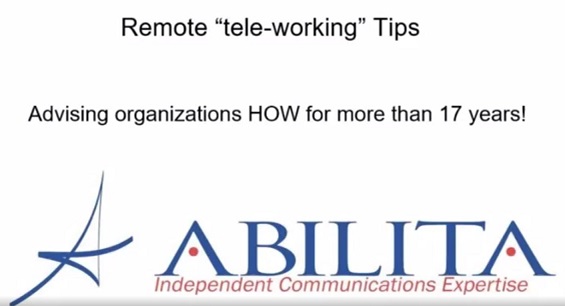by Dan Aylward
We are all familiar with calling 911 and the simplicity, yet significant value, it has for our health and well-being. Behind the scenes is a vast and complex infrastructure in our communities. However, with changes in technology come necessary changes with this telecommunications infrastructure. By the end of this year, Public Act 244, which mandates 911 location phone systems in large buildings, will go into effect. By the end of 2020, every organization in Michigan with a phone system will need to be in compliance with changes in regulations governing 911 (with the exceptions below). What are the changes? Below are eight questions and answers to help you understand the changes, as well as information that all communities must understand for compliance.
What Is It? Not long ago we all used POTS lines (Plain Old Telephone Service) and PRI circuits (23 phone lines bundled into one digital circuit). Since these phone lines terminated at one physical address, almost all calls originated from a reasonable physical distance from the phone system. Today, with VoIP (Voice over IP) and UC (Unified Communication), someone could literally be anywhere when calling 911. This is a problem when you need to get emergency responders on-site as soon as possible AND to the right area within the building. The best solution is to send specific geographic identifier information to the PSAP (Public Safety Answering Point) when calling from a MLTS (Multi-Line Telephone System or phone system). This could be address, floor, wing or room information. Also, this does not relate to mobile service.
What Is the Law? Consider this: An employee has a heart attack after normal working hours with nobody around. He or she dials 911 and the ambulance goes to the wrong address. Or, the emergency responders don’t know where the caller is located in the building! This is a reality today with VoIP and multiple buildings tied to one phone system. It is for this reason that 911 is being enhanced to E911. Every organization in Michigan with a phone system in a location with building(s) of more than 7,000 square feet or multiple physical addresses must install equipment and software that reveals where in the building a 911 call originates. Single floor locations, farms, and houses of worship with less than 20,000 square feet and fewer than 20 communication devices (i.e. phones) will need to comply when a new phone system is installed.
Is This the Same as Next Gen 911? No. Next Gen 911 is a technology standard that allows PSAPs to receive texts, pictures, video chat, social media, and VoIP. This will also allow the 911 Call Centers to transfer calls to other call centers to handle call overload. However, many are not ready for this technology. It is also very difficult to know if your local PSAP is capable of handling anything besides calls and SMS (Short Message Service). For more information, you can consult the master PSAP registry at fcc.gov/files/ masterpsapregistryv2238xlsx.
Does 911 Need to Do Anything Different? Yes. The PSAPs need to update their systems as well. Most will because the Middle-Class Tax Relief and Job Creation Act of 2012 authorized $112 million to do this and prepare for NG911. But this does not mean all are compliant.
When Will This Happen? This was supposed to happen in 2006, but the legislation has been delayed a couple times. The new date is December 31, 2019. Since House Bill 4249 passed, there have been some changes. However, all entities should be prepared to be in compliance by the end of 2020!
What Do We Have to Do? Almost all phone equipment eight years old (or newer) is compliant. However, you will need to make sure the phone system database is populated to send the appropriate information to the PSAP. Then, you’ll need to make sure your telecommunications company (e.g. AT&T) is pushing this information to the PSAP. Every extension on the phone system needs to have the capability to do this. For example: “734 Evergreen Terrace, Springbrook, MI, second floor, northwest corner” will be sent to the PSAP. Alternatively, you will have to identify the building(s) into 7,000-square-foot sections as identifiers.
Is There Any Ongoing Maintenance Involved with This? Yes. When you have moves, adds, changes, or deletions you will need to update the database with your telecom carrier. For example, if Michelle from the second-floor clerk’s office moves to the first-floor treasurer’s office, this information will need to be updated. In addition, if you have connected buildings with one phone system, the street address will need to be updated when an employee moves between buildings.
What if We Don’t? Penalties can be $500-$5,000 per offense; however, the greater concern is a lawsuit for noncompliance where compliance could mean saving someone’s life! Exceptions are if the building maintains, on a 24-hour basis, an alternative method of notification and adequate means of signaling and responding to emergencies or the phone system is not serviced by E911. The telecommunications industry and services have changed radically over the past ten years. However difficult it is to make this transition, it is important to incorporate standards for the safety of all staff.
Dan Aylward is a senior consultant for Abilita. You may contact him at 517.853.8130 or daylward@abilita.com.
Click here for more information and if you need help navigating these new regulations.










